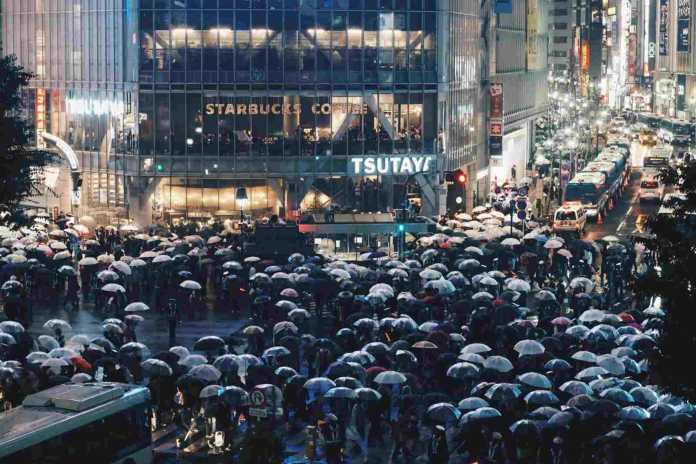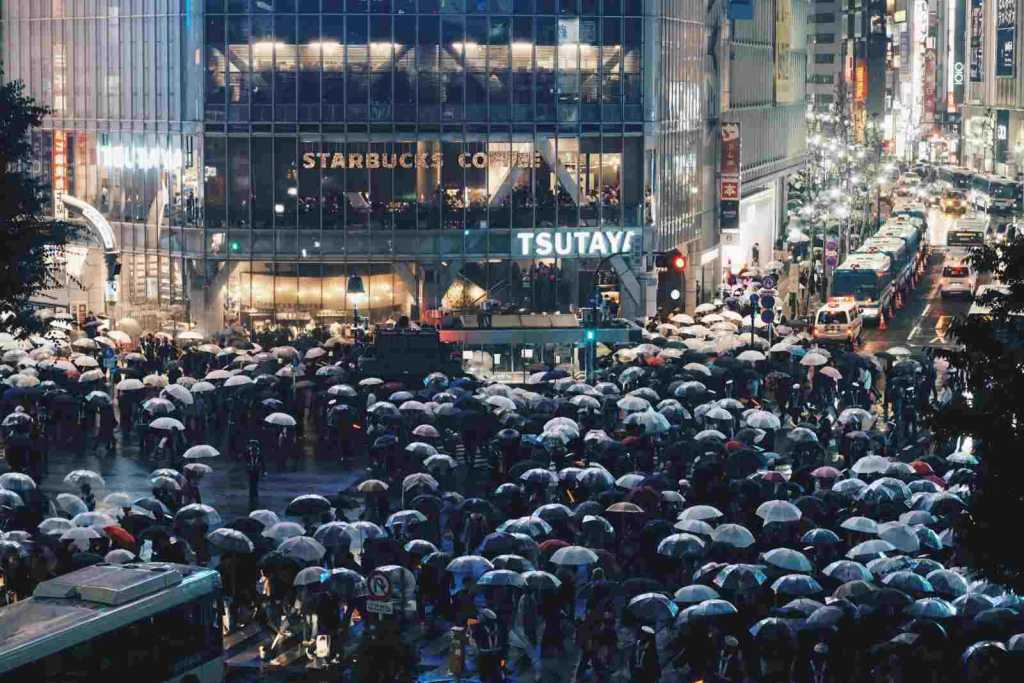Editor’s Note: The internet has no shortage of recommendations on how to enjoy traveling in Japan, even on a student budget. But if you’re here to get the cheapest food and hotel recommendations in Japan, you’re better off reading Google Page1 ☺ This article is about the harmful effects of Japan’s massive growth as a travel destination and how having a responsible mindset as a tourist is a good solution to the problem. I will even say that responsible travel sparks a special kind of joy to anyone who’s aspiring to be an internationally-minded individual—that’s right, that’s you IM readers!
What is exactly the problem with massive growth in Japan’s tourism?
(source) Latest Data of Annual Overseas Residents’ Visits to Japan
Japanese media uses the term ‘tourism pollution’ (観光公害 or ‘kankou kougai’) to describe local residents’ discomfort in seeing their hometown being overrun by overseas tourists. Some of the complaints cite local restaurants being occupied by social media enthusiasts, jammed local transportation, and generally inconsiderate behaviors (such as walking and eating, making too much noise, littering, and disturbing residents). You may think this article doesn’t apply to you because you never do any of the things mentioned above. However, I’d like to return to the root question of tourism. Why do we visit other countries? What does it mean to have foreigners enter your country? The answer isn’t always the tourism as we all know today.
It’s important to say we belong to Indonesia’s generation who both grow up with the fact that traveling around ASEAN is super fuss-free and later as a young adult experience Indonesia’s most remarkable economic growth period. The more common it is to see foreign brands or restaurants every day, the more we channel our appetite to seeing the world outside—ooh, the ever-kicking #wanderlust. Today, traveling has never been easier with more low-cost carriers, more methods of payment, and more guides and recommendations on the internet. It’s not like we are oblivious to say, the news of increasing deforestation to build luxury resorts everywhere in the world, but precisely because we’ve heard it so many times we mentally accept that it is the price to pay for skyrocketing tourism growth. After all, we pay travel tax and buy their souvenirs, so we contribute to the local economy, right?
Probably, but not always.
For an ethnic and cultural homogenous community with centuries of isolationist government policy which also happens to be the world’s third-largest economy by GDP, Japan has always taken a cautious stance, even when at the turn of the millennium, ‘globalization’ was the world’s favorite buzzword. Behind its history of lower crime rate and relative peace is Japan’s dedication to preserving its culture, values and way of living. Prime Minister Abe has a target of 40M visitors in 2020 and with the Tokyo Olympics in mind, it is not an impossible goal. However, the rapid growth of inbound tourists are yet to be accompanied with supportive public opinions and all these negative news don’t really help convince Japanese residents that tourism is still a force of good.
Okay, so what should I do now?
Source: Finan Akbar on Unsplash
There are actually many ways to be a responsible tourist, there’s no right or wrong answer to it. In my case, I believe in supporting the local economy and there are 3 things you can follow in your next trip:
- Support local hosts & businesses:
I bet this is the easiest advice because you probably are already looking for that authentic Japanese experience. Some of the best reservation websites in Japan are, not surprising to anyone, Japanese. Try Rakuten Travel and Jalan. Other websites are also reliable, but look for ryokan (Japanese style inns) instead of normal apartment/hotel because often ryokan are decades old, family-run businesses. One of the reasons why minpaku (Airbnb-type of accommodation) law was controversial is because Airbnb lists many properties in residential areas, yet those properties are owned by non-Japanese who don’t live in the community. Look for Japanese hosts instead. Japan’s tourism is so popular now we often forget the boom only started less than a decade ago. The most precious recommendation is still offline—ask the locals!
- Support local movement and activities:
I prefer to travel light and pay for services instead of souvenirs. With tons of information online nowadays, people often travel without the help of neither a travel agency nor a guide. It’s doable, yet hard to bring the history of a place alive. Hence, a beautiful garden often only ends up as another pixel in your Instagram feed. I recommend booking guided tours–find not your usual tour guides but MAs, Ph.D.s scholars in their fields of expertise! I believe that it is ethical for people who believe in the value of higher education to start paying for a service which reflects one’s study and research effort. Some of the guides I met in my 5++ years of traveling really inspired me with my journey in grad school. Too expensive? Find scholar friends in Japan whom you could ask for a favor ☺ The least is to read and observe the places you’re visiting, then ask the people you meet in your journey—specific questions will return specific answers!
- Support local government and entrepreneurial initiatives:
This is a subject very close to my heart but honestly, quite a weird travel advice, right? Understanding that tourism is really one of Japan’s strategic national objective, every time I hear of a new government campaign to boost tourism, I take it as the way Japanese people wants their own country’s history and culture to be understood by foreigners. I start to appreciate that point of view and over time I believe it’s better to pay attention to the values that point of view brings, as foreigners often stop at the surface level of understanding and worse, unflattering stereotypes. Find My Tokyo and GO TOKYO are some of my favorites. Plus, as tech start-ups are at the front of solving everyday inefficiencies, why don’t we use some of the new innovations that aim to make traveling more enjoyable? In the recent entries of TechCrunch, for example, I found out that there’s an interesting way to support Japanese food artisans. This is a good way to make better use of the vast network of information that we enjoy for free today.
Hope this article convinces you that you too can be a responsible tourist, even on a budget!
















